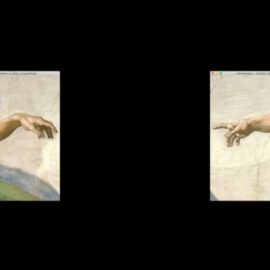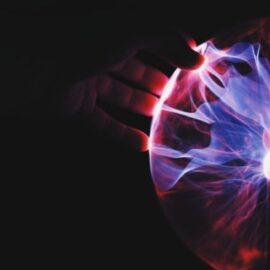

This article is an excerpt from the Shortform book guide to "A New Earth" by Eckhart Tolle. Shortform has the world's best summaries and analyses of books you should be reading.
Like this article? Sign up for a free trial here .
What is Eckhart Tolle’s A New Earth about? What does Tolle mean by “awakening to your life’s purpose”? What is the purpose you must awaken to?
In his book A New Earth: Awakening to Your Life’s Purpose, Eckhart Tolle asserts that humanity is currently caught up in a state of mindlessness. When humanity collectively reaches a perpetual state of mindfulness, enjoyment will become the motivating force behind people’s actions rather than wanting. This collective shift of consciousness starts with the individual—it’s everyone’s responsibility to break free from mindlessness and wake up to their true life’s purpose.
Here’s how to break free from mindlessness and awaken to your true life’s purpose.
The Current State of Humanity
In his book A New Earth: Awakening to Your Life’s Purpose, Eckhart Tolle argues that humanity currently exists in a state he calls object consciousness—when our reality and priorities are entirely centered around enhancing our self-image. We’ll call this state mindlessness.
Unfortunately, despite the ego’s hard work, becoming superior to others won’t eliminate the fear of being nothing. This is because there will always be someone who has more or better elements than us. Therefore, the ego will always crave more elements to gain superiority, resulting in what Tolle calls the endless cycle of wanting—no matter what we have, we will always want more.
Tolle explains that because of this cycle, humans are only able to experience the present moment in one of three dysfunctional ways:
- As a bridge to a future moment. This is when the only value of the present moment is to reach something better in the future. This state makes us feel bored and discontent.
- For example, you may be enduring a business meeting by thinking about the dinner party you’re going to after.
- As a barrier or obligation. This is when we actively dislike what we’re doing, but we have to do it to get what we want. This results in impatience, frustration, and stress.
- For example, you hate your current job and dread it the entire day, but you do it anyway because it’s the only way to make an income and get a better job in the future.
- As an antagonist. This is the worst state to be in—when we see our reality as inherently evil and against us. This state most commonly results from negative thoughts provided by our pain-body, like “nothing good ever happens to me,” and results in the emotional reactions that cause us to see the present as an enemy.
- For example, you wake up with a dead phone, miss the bus to work, and forget your lunch at home, all while fuming and complaining that it’s “just my luck because nothing good ever happens to me.” You consequently feel anger and resentment towards life.
When we’re unable to be mentally present because we’re consumed with wanting, our ego can control our thinking and behavior, trapping us in a dysfunctional state of mindlessness. Tolle argues that the only way to escape this state is to evolve our consciousness to a higher level—one where we are present in each moment rather than constantly wanting. He calls this state being or presence, but we’ll refer to it as mindfulness.
How to Attain a State of Mindfulness
Tolle offers five suggestions for how to live with non-attachment, nonjudgment, and nonresistance and ultimately achieve a state of mindfulness.
- Recognize and ignore the compulsions of the ego that strengthen it: The ego compels us to strengthen our identity and reach for superiority. So, resist the urge to do things like express your opinion when it’s not asked for or needed; demand recognition; make unnecessary requests; have strong expectations of people; or try to make an impression through your beliefs, knowledge, or looks. These are the compulsions of your ego.
- Detach from the thoughts and emotions of your pain-body: When we get upset over things like disrespect, lack of attention, or other people’s behavior, we cause ourselves unnecessary misery and strengthen our pain-body, making ourselves more prone to these reactions in the future. When you recognize these thoughts and emotions cropping up, detach yourself from them and acknowledge that they’re not you, but rather the pain-body trying to bring you down. With repetition, it will become easier to separate yourself from these negativities.
- When someone damages your ego (they accuse, blame, disrespect you, and so on) don’t fight it with a reaction or response—let it happen. Your ego reacts to these offenses as a restoration tactic. But when you don’t react—when you stop defending your “self”—you’ll stop identifying with your ego and strengthen your connection to your inner self.
- Focus on your breathing and take a break from thinking. When you focus all your attention on breathing and feeling your body, you become grounded in mindfulness and the present moment. This is a form of meditation. This will make you aware of the gap between your thinking mind, which is the voice of your ego, and your inner self, which will allow you to feel the conscious energy that flows through every part of your body. You are not your body or your mind, you are the conscious energy within it.
- Do every single thing in a state of either acceptance, enjoyment, or enthusiasm. You can’t always be joyful or enthusiastic about things you have to do, like cleaning or working, but you can accept them by simply living in the present moment. If you just accept what’s happening right now without seeing it as a bridge, a barrier, or an antagonist, there’s no room for negative thoughts and emotions, only mindfulness and peace.

———End of Preview———
Like what you just read? Read the rest of the world's best book summary and analysis of Eckhart Tolle's "A New Earth" at Shortform .
Here's what you'll find in our full A New Earth summary :
- Eckhart Tolle's guide on how to evaluate your consciousness
- How to overcome ego-driven thoughts and behaviors
- Why humanity must undergo an evolution of consciousness






